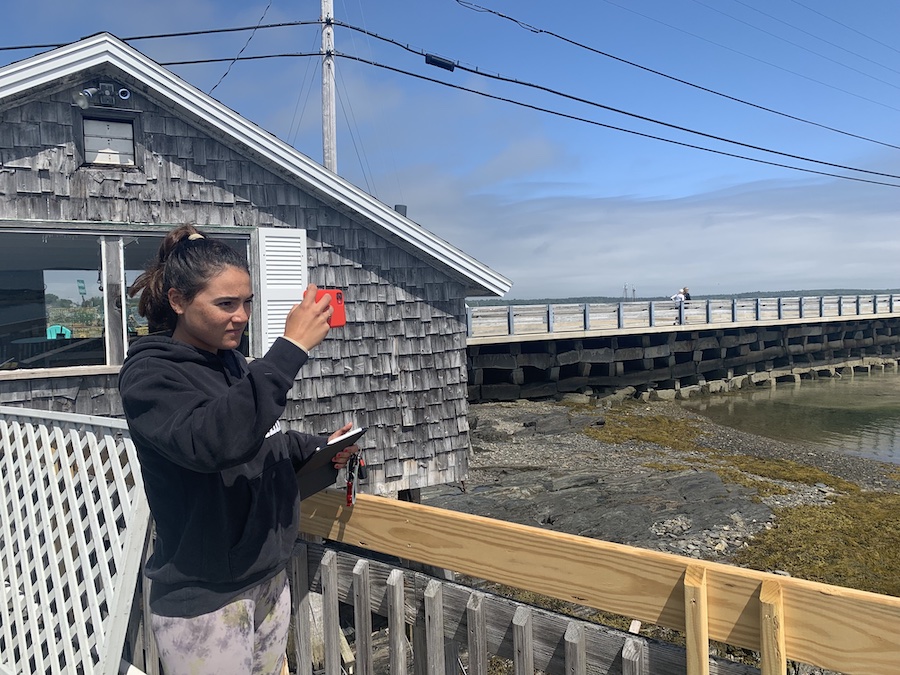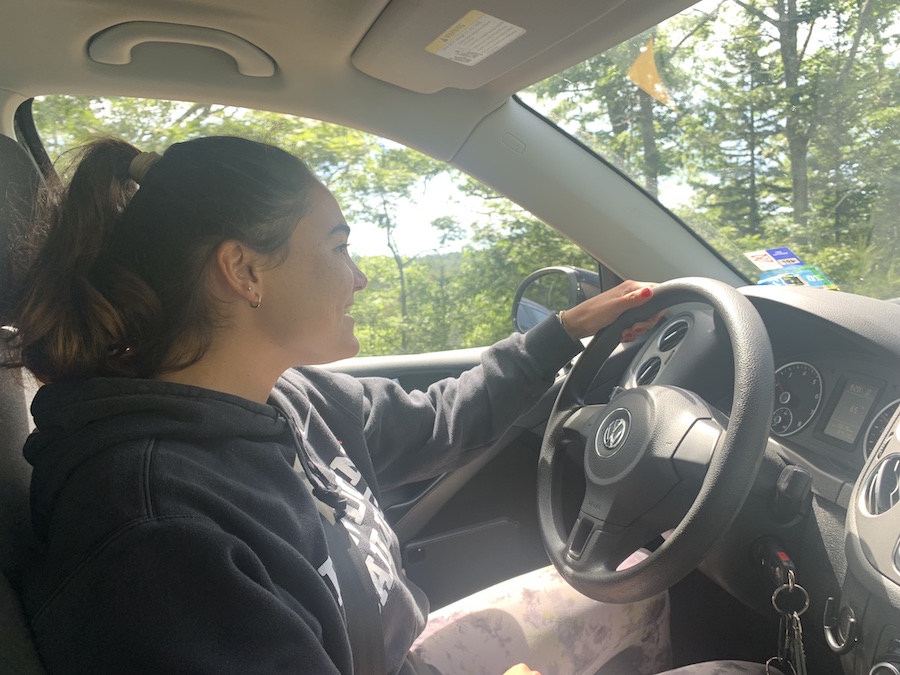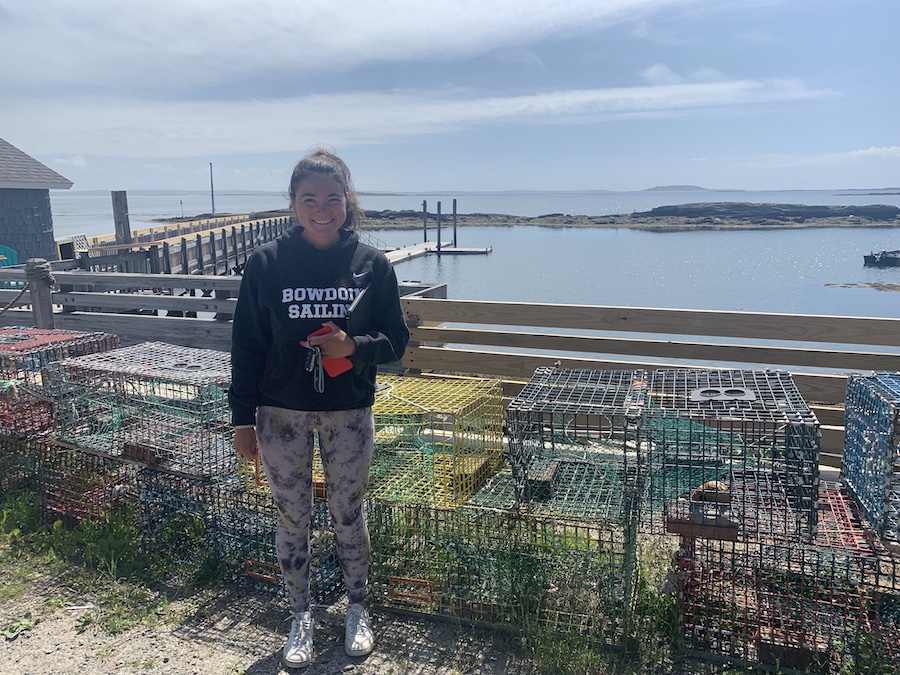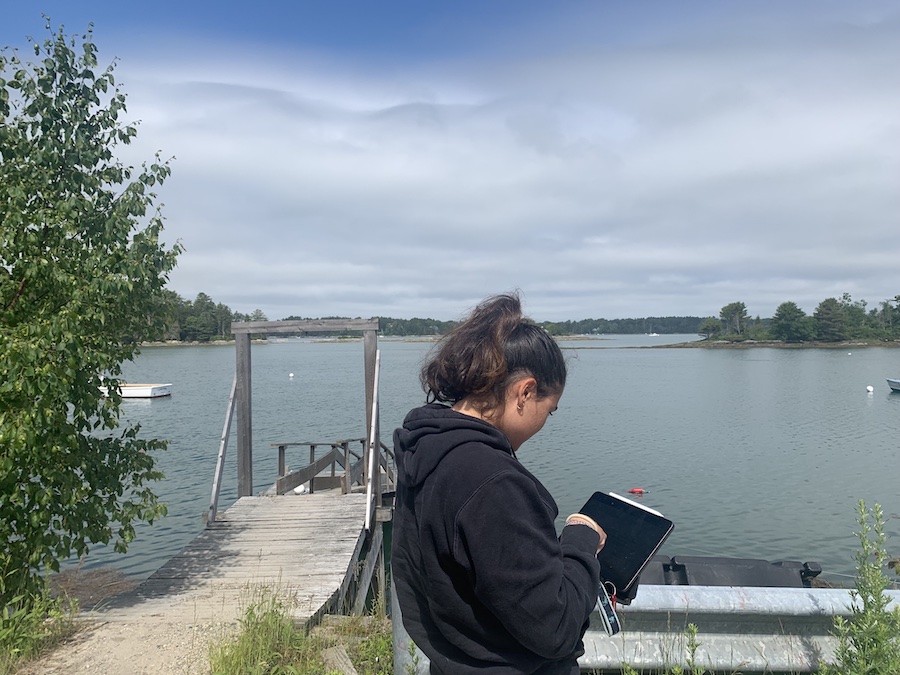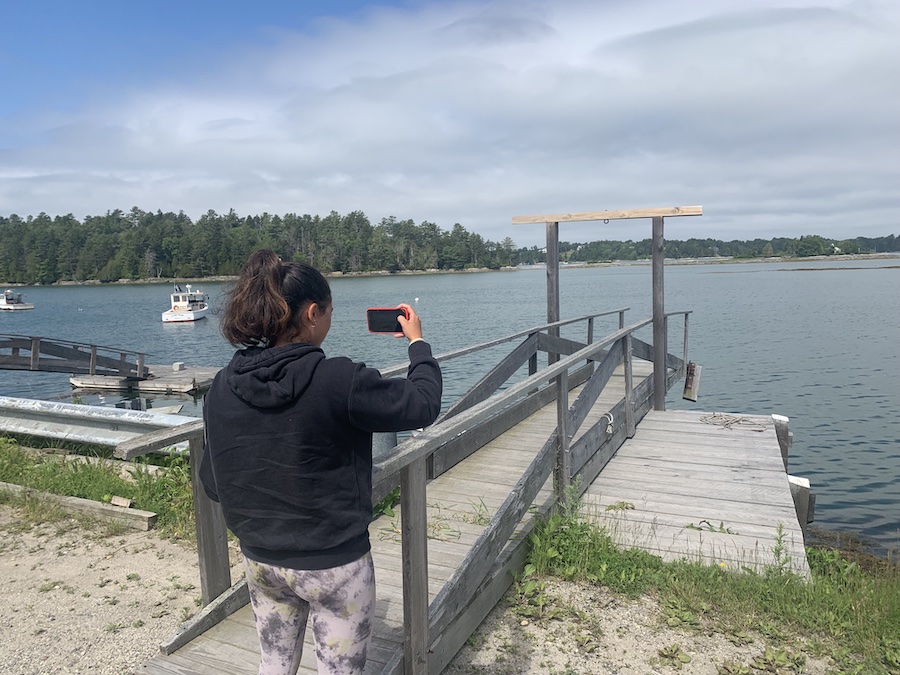Meghan Gonzalez ’23 Explores the History of Midcoast Lobstering Industry
By Jane Godiner ’23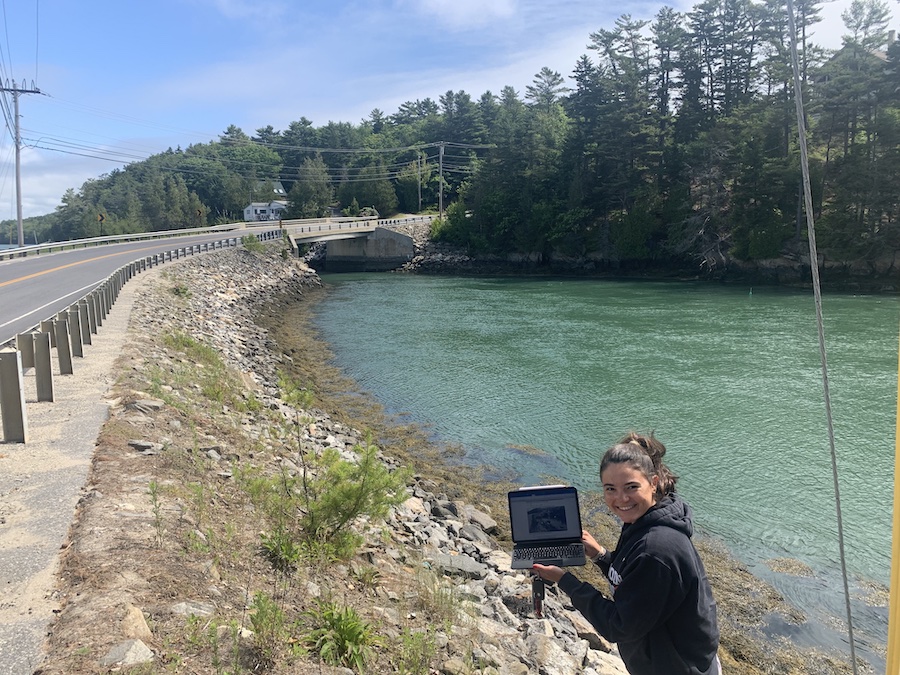
Her project explores the effects of global warming on the local coast and how that impacts the men and women who make their living trapping lobster. It consists of multimedia components—from photographs of lobstering sites to interviews with affected lobstermen.
(Regardless of gender, individuals in Maine who harvest lobsters for a living often prefer to be called lobstermen rather than other gender-neutral terms.)
"I really didn't know that much about the lobster industry going into the summer, but it's ingrained in the culture of Maine, so I've been learning about how global warming is threatening that," Gonzalez said. I'm trying to answer many questions, [such as] what would Maine look like without lobster, what is the future of younger generations of lobstermen, and what can we learn from past changes and hardships that lobstermen have faced?"
Gonzalez conceived the building blocks of her summer project during a Geographic Information Systems (GIS) course that she took in the fall of 2021 with Senior Lecturer in Environmental Studies Eileen Johnson. Her research on the geographic migration of lobsters during the fall was solely data-focused, but she realized that it lended itself to an ethnography.
"I wanted to elaborate more on the actual lobstermen, without the numbers,” Gonzalez said. “I connected with [Assistant Professor of Anthropology] Shreyas Shreynath, an environmental anthropologist who helped me further link the project to climate change, and it showed the human side of all the data that I had originally collected.
On a typical day during her fellowship, Gonzalez will drive to one of Maine’s historic coastal communities—such as Harpswell, Holbrook Wharf, or Cundy’s Harbor—and spend time photographing lobstering sites and tracking their evolution using archival photos as reference points.
"Even with these photos, everything is so story-based," Gonzalez said. “When I begin interviewing lobstermen at community centers, they will share the stories of the generations before them."
As the summer continues, Gonzalez believes she must look at the lobstermens' achievements and setbacks—as well as the ever-changing environments in which they have worked—generation by generation. She hopes that this will paint a clearer, more nuanced picture of their lives throughout Maine’s history, as well as elucidate the possible future of the business.
"The industry kicked off and got really big in the ’60s and ’70s,” Gonzalez said. “A lot of these lobstermen today, their parents were lobstermen, so there’s a real history here. I’m really excited to keep exploring it."
